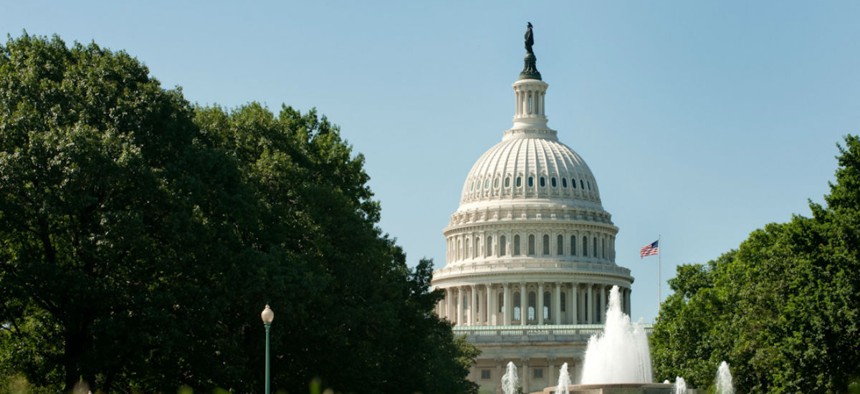
Architect of the Capitol
Transparency Advocates Cheer Bill to Publish Congressional Research
House appropriators could end years of half-enforced secrecy on CRS reports.
The years-in-the-making push to end what some see as a charade and require publication of all Congressional Research Service reports gained momentum just before Congress broke for the July recess.
The House Appropriations Committee’s fiscal 2018 spending bill for the legislative branch on June 28 included language directing the CRS, which is part of the Library of Congress, to make “all non-confidential reports” available to the public.
The hefty reports by specialists on all manner of policy topics have long been kept to a narrow circulation by members of Congress, who considered CRS an extension of their staffs and who handed out the reports as they saw fit. But the rise of the Internet reduced printing costs to virtually nothing, and transparency activists such as Steven Aftergood of the Federation of American Scientists have rendered moot the policy of narrow circulation by systematically obtaining most reports through leaks.
The language in the current spending bill “is a major victory for open, effective government that prioritizes access and accountability,” said Rep. Mike Quigley, D-Ill., an appropriations member and founder of the Transparency Caucus. He reintroduced his “Equal Access to Congressional Research Service Reports Act in May with Rep. Leonard Lance, R-N.J.
The bill would direct CRS to publish its reports on govinfo.gov, a website managed by the Government Printing Office, and to consult with GPO within 90 days of enactment to determine any costs.
“As trust in Washington continues to wane, practical measures like these will ensure the American people have more insight into the legislative decision making and public policy proposals that impact their lives,” Quigley said. “Bridging the gap between constituents and elected officials through twenty-first century updates to our processes will strengthen our democracy.” A Senate version is expected from Sens. Patrick Leahy, D-Vt., and John McCain, R-Ariz.
Also pleased were 40 groups that in April had signed a letter advocating the change to House and Senate committee chairman, among them the American Library Association, the American Society of News Editors, Cause of Action and the Center for Responsive Politics.
“These nonpartisan reports, authored by ‘Congress's think tank,’ explain important policy issues considered by Congress in language anyone can understand,” said Daniel Schuman, policy director for the nonprofit Demand Progress, which signed the letter. “They should be equitably available to everyone so we all can be better informed in this era of increasing citizen activism and public engagement in the policy making process.”
Kevin Kosar, vice president for policy at the libertarian think tank called The R Street Institute, said, “I spent 11 years at CRS as an analyst and manager, and this change is way overdue. I am very glad Congress has moved to end the inequitable access to these nonpartisan reports. The public has a right to read them, and CRS analysts need to be free from the gotcha-trap that current policy puts them in.”
The nonprofit Project on Government Oversight hailed the move in a blog post by intern Albert Chen, who said the change “will provide the public with the same information on the issues as their members of Congress, allowing citizens to better hold their government accountable for its decisions and participate in an informed public discourse. In a time of ‘alternative facts’ and ‘fake news,’ public access to CRS reports is more necessary than ever.”
POGO picked up on possible pending opposition from Rep. Betsy McCollum, D-Minn. When the issue was debated last year. Rep. Debbie Wasserman Schultz, D-Fla., warned that forcing public release would slow the work of CRS analysts. “It’s easy to say transparency, but Congress relies on CRS as an extension of staff, for quick and dirty analysis that is sometimes not perfect,” said an appropriations committee aide familiar with her views. “We need to be careful about a culture change at CRS if it became a public-facing organization, like the Government Accountability Office.”







